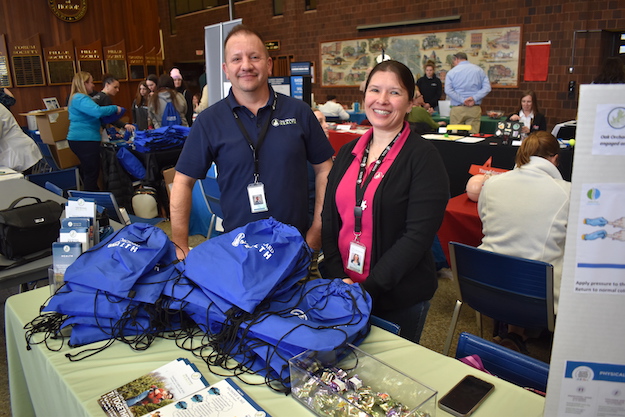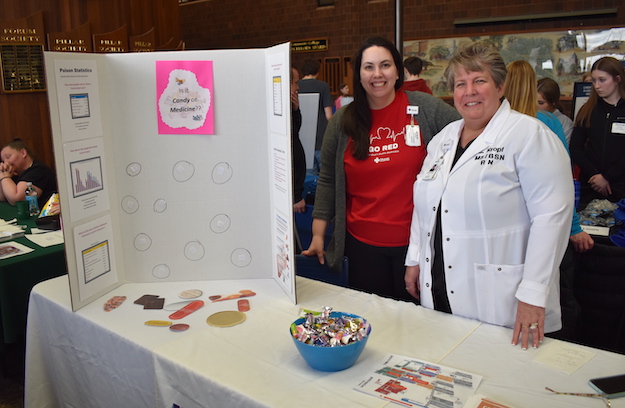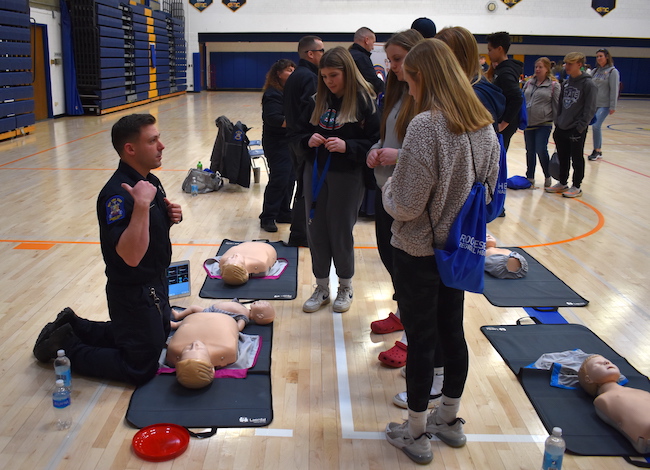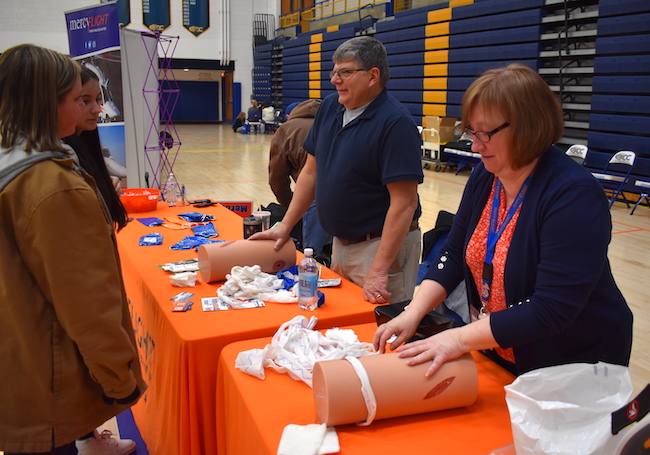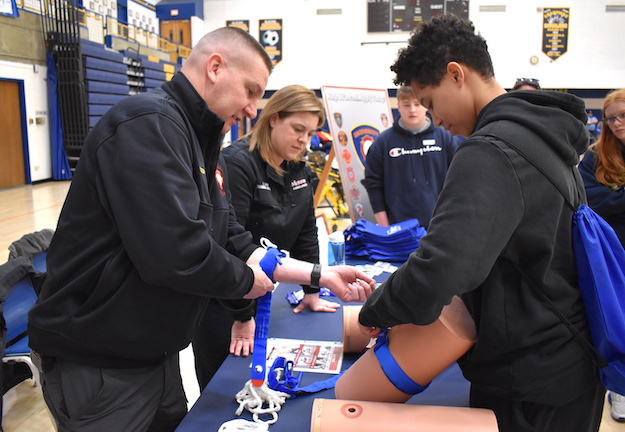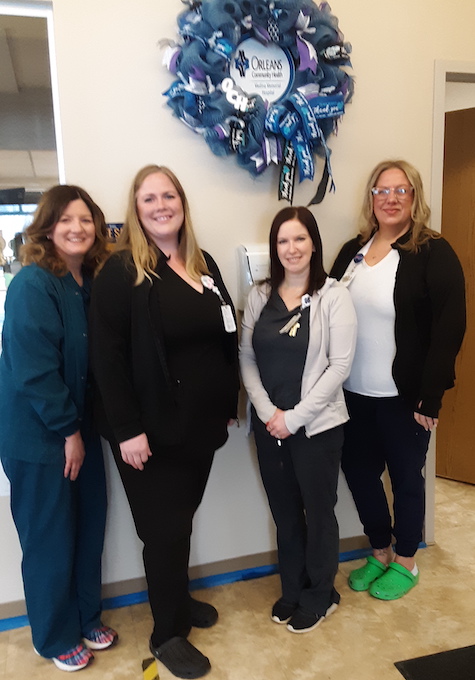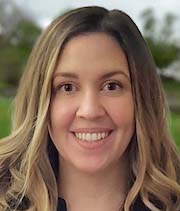Wound Care Center at Medina honored for ‘distinction’ by Healogic
MEDINA – Orleans Community Health held an open house Wednesday morning to celebrate its Wound Care Center being named a Center of Distinction by the national company Healogic, based in Jacksonville, Fla.
Healogic’s director of operations, Toni McCutcheon, presented the award to Lisa Albanese Klein, program director at the Wound Care Center, during a ceremony, which included hospital CEO Marc Shurtz, Dr. David Walborn, Medina Mayor Mike Sidari, Deputy Mayor Marguerite Sherman, Wound Care Center nurses Amanda Jendrowski and Kylie Dougherty, and a satisfied patient, Jackie DeHollander of Lockport, formerly of Medina.
In presenting the award, McCutcheon said earning this honor is not an easy achievement.
“To qualify, a center must have a patient satisfaction rating of 92 percent or higher; a wound mix comprehensive heal rate of 75 percent or higher; and an outlier rate of 16 percent or less,” she said. “The highly skilled and trained staff has made it possible to achieve this award. They provide exceptional wound care within this community and you should be proud of them.”
The Wound Care Center specializes in chronic or non-healing wounds that without treatment could lead to infection, hospitalization or possible amputation, she said.
“The Orleans Community Health’s Wound Care Center is about healing patients and this wound care center has achieve a great honor in receiving the Center of Distinction Award from Healogics, the nation’s leading wound care expert,” McCutcheon said.
Klein said this was an amazing accomplishment for the Center, and one they couldn’t have achieved without the support and leadership at Orleans Community Health. She thanked hospital CEO Marc Shurtz, nursing supervisor Kim Gray for their commitment and vision they had in providing wound care service for the local community.
“You identified a service that was lacking and brought our team in to support that need,” Klein said. “That was a huge undertaking, especially when the Center opened in December 2019, just before the onset of the Covid-19 pandemic.”
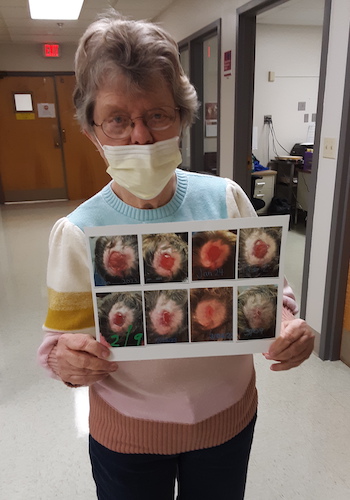
Jackie DeHollander of Lockport, formerly of Medina, shared her experience of being healed at Medina Memorial Hospital’s Wound Care Center. She shows a sequence of pictures of the wound on her head and praised the care she got there.
“Our small but mighty team has accomplished tremendous results for patients,” Klein added. “Our medical director Dr. Joseph Canzoneri, our clinical nurse manager Teresa Clark, Dr. David Walborn and our newest doctor Samuel Grodman are all dedicated to providing exceptional patient care and healing results. I am awed by the dedication and compassion I see demonstrated by this team.”
Klein introduced former patient, Jackie DeHollander, who showed pictures of a nasty wound on her head and the progression as it healed. She fell down concrete steps while attending a concert in Buffalo in December. She was taken to ECMC, where they X-rayed her and sent her home. When she visited her primary care doctor, he didn’t even look at her head, but sent her to physical therapy, thinking she needed to have her balance improved.
The sore continued to worsen and thick matter and blood were oozing from it, so she put a paper towel over it. When she finally went back to the doctor and the paper towel was pulled off, the raw sore was more than an inch in diameter.
DeHollander had nothing but praise for nurses Amanda Jendrowski and Kylie Dougherty.
“I’ll say it a million times. They were outstanding,” DeHollander said. “They were wonderful to me. I loved all of them. These are people who really care.”
DeHollander would visit the Wound Care Center once a week for three months before the wound was healed enough for her to be discharged from their care.
Medina Mayor Mike Sidari commended the hospital on its tremendous growth, which he said has been happening for the last 10 to 15 years.
“When you pull in the parking lot, you can’t find a place to park, and that’s good,” he said. “When new people come to Medina I tell them about all the services we have here, and I’m proud to tell them my wife was a nurse here for more than 30 years.”
Shurtz said it was the hospital’s goal to keep growing and bring more award-winning services to Medina.
“You shouldn’t have to drive to the city to get health care,” he said.























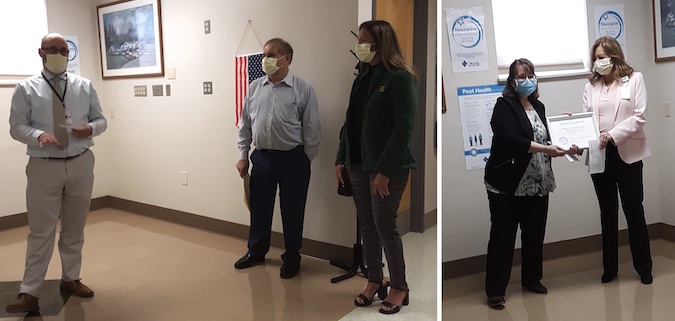

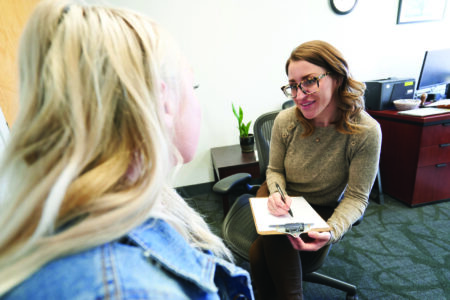 By Robin Govanlu, Director of Behavioral Health, Oak Orchard Health
By Robin Govanlu, Director of Behavioral Health, Oak Orchard Health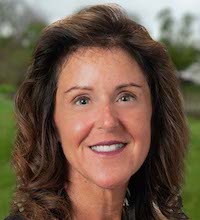
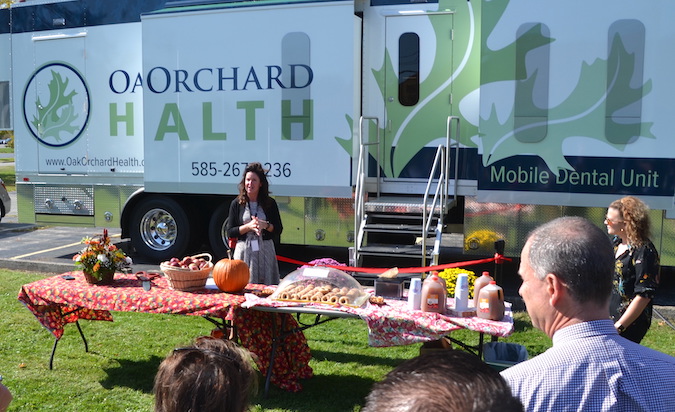

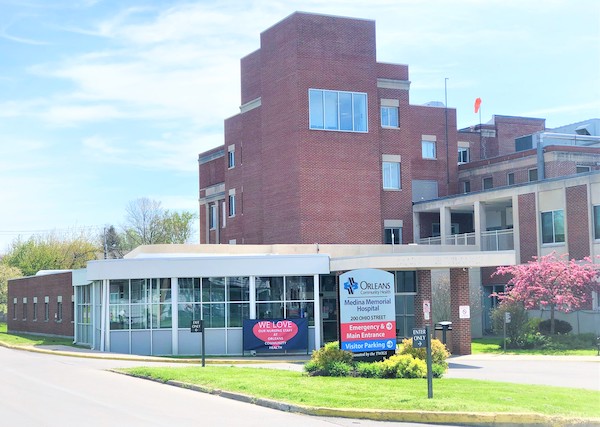
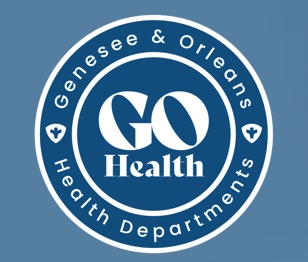 This week, April 3-9, is National Public Health Week. The goal of National Public Health Week is to recognize the contributions of public health, the workforce and highlight issues that can improve the health and well-being of our communities.
This week, April 3-9, is National Public Health Week. The goal of National Public Health Week is to recognize the contributions of public health, the workforce and highlight issues that can improve the health and well-being of our communities.
